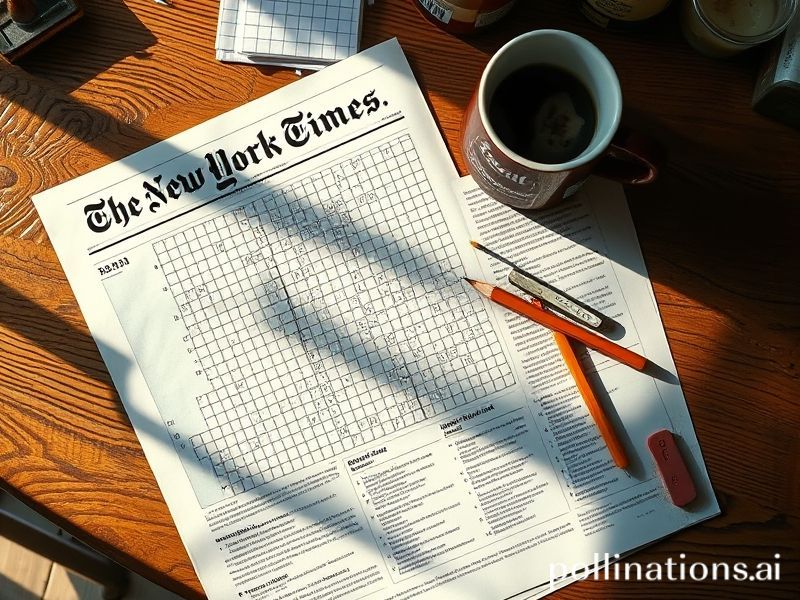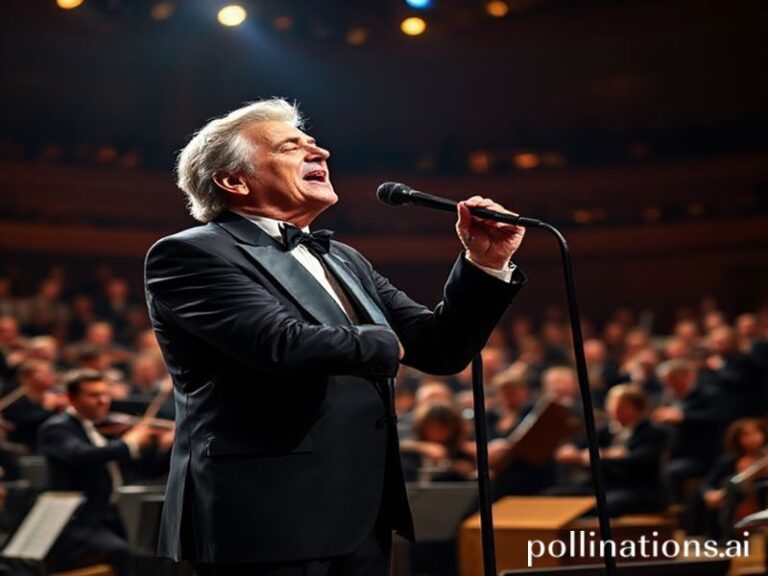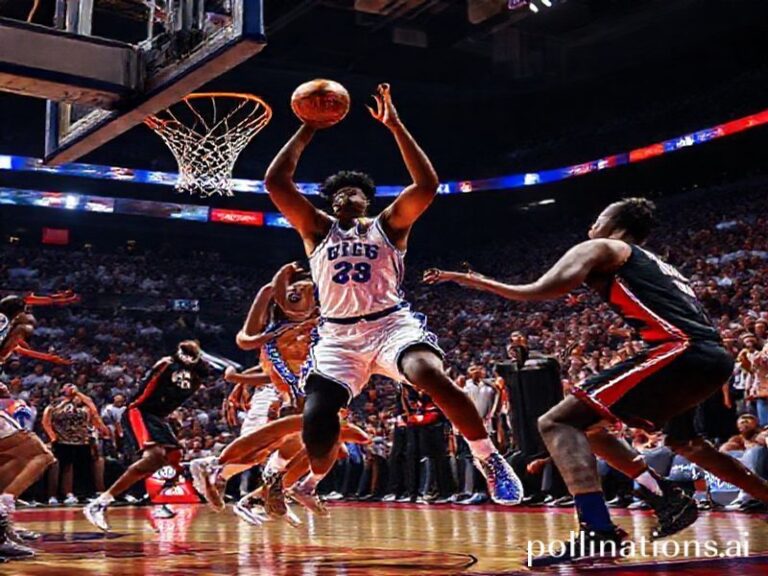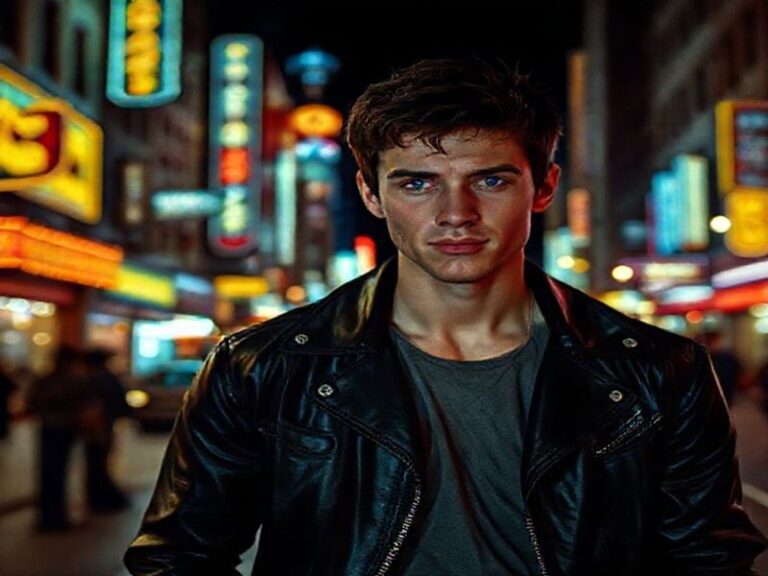How the NYT Crossword Became Earth’s Most Addictive Passport: A Dispatch From the Global Grid
The Global Empire of Tiny Squares: How the New York Times Crossword Quietly Colonized the Planet
By the time the first sip of Monday-morning espresso hits a bleary-eyed banker in Singapore, a retiree in São Paulo has already penciled 1-Across in Portuguese and muttered something unprintable about the clue “Oscar winner Paquin.” The New York Times crossword, that most parochial of American pastimes, has become a stealth lingua franca for the world’s neurotic overachievers. Where once empires required gunboats and missionaries, today they need only 15 by 15 grids and the faint promise that “aha!” moment will arrive before the second refill.
From Berlin’s co-working lofts to Lagos’s overcrowded danfo buses, commuters stare at screens glowing with black-and-white lattices. They trade spoilers on encrypted WhatsApp groups, compare solving times like Cold-War missile throw-weights, and lament that the puzzle’s editor—Will Shortz, a man who looks like he was born in a cardigan—can weaponize a single rebus square against them. In Seoul, an entire subreddit debates whether “K-pop megastar, casually” (three letters) is BTS or PSY, while the Hangang River continues its slow, indifferent slide toward the Yellow Sea.
The crossword’s conquest is less a matter of soft power than of soft addiction. It fills the same psychological niche once occupied by cigarettes: portable, mildly antisocial, and capable of convincing the user that existential dread is merely a tricky Thursday theme. During India’s punishing second-wave lockdown, daily solvers reported that the puzzle was the only appointment that still started on time. In Kyiv’s bomb shelters, a half-completed grid can become a talisman against worse news; the wordplay offers the same hollow comfort as a trench whistle—loud enough to drown out artillery, quiet enough to admit you’re still breathing.
Naturally, where there is obsession, there is commerce. A brisk gray market has emerged for the puzzle in countries where the Times paywall is more heavily fortified than the actual border. Tehran’s tech-savvy youth swap PDFs like samizdat; Moscow’s freelancers sell yesterday’s solution as today’s horoscope. In Shenzhen, factories renowned for churning out knock-off AirPods now produce knock-off crossword mugs printed with yesterday’s grid—because nothing says “authentic” like caffeine stains on a clue you failed to finish.
The clues themselves have become diplomatic flashpoints. When 59-Down recently demanded “Island claimed by six nations,” solvers from Tokyo to Taipei to Manila filled in the same four-letter answer and immediately argued about who had the moral high ground. The puzzle, in its maddening neutrality, treats territorial disputes the way it treats a pun on “ore” versus “oar”: a plaything for the intellectually smug. Meanwhile, actual diplomats continue to argue over the same specks of land with considerably less humor and more navy patrol boats.
Even the language of crosswordese has gone global. English may be the operating system, but the drivers are local. Finnish constructors smuggle in “sauna” variants; Nigerian setters wink at jollof rice; French cruciverbalists insist on diacritical marks that break American keyboards. The result is a pidgin of pop culture, imperial history, and inside jokes that no one outside the tribe quite gets—rather like NATO communiqués, but with better puns.
And yet, for all its smug cosmopolitanism, the crossword remains a monument to human limitation. Every grid is a confession that the universe is knowable in 78 clues or fewer, that chaos can be reduced to a neat box. It is the intellectual equivalent of arranging deck chairs on the Titanic, except the chairs spell out “ICE” and someone has already complained that the clue was too vague.
As COP delegates bicker over half-degree temperature targets and central bankers juggle inflation like flaming clubs, millions of us will still set an alarm for midnight GMT—when the new puzzle drops—and pretend that filling in “ERTE” is the most pressing task on Earth. The planet burns, the markets convulse, but somewhere a solver in Lagos just got “nene” (Hawaiian goose) on the first try and feels, for seven fleeting seconds, like a god.
Conclusion: The crossword’s greatest trick is convincing a fractured world that it shares a common problem—namely, how to parse a clue about a 1970s sitcom actor—when it can’t even agree on carbon budgets. If that isn’t the darkest joke on modernity, I don’t know what is. Now, if you’ll excuse me, 34-Across is calling. Something about “End of an empire, briefly.” Four letters. I’m guessing “RUIN.”







